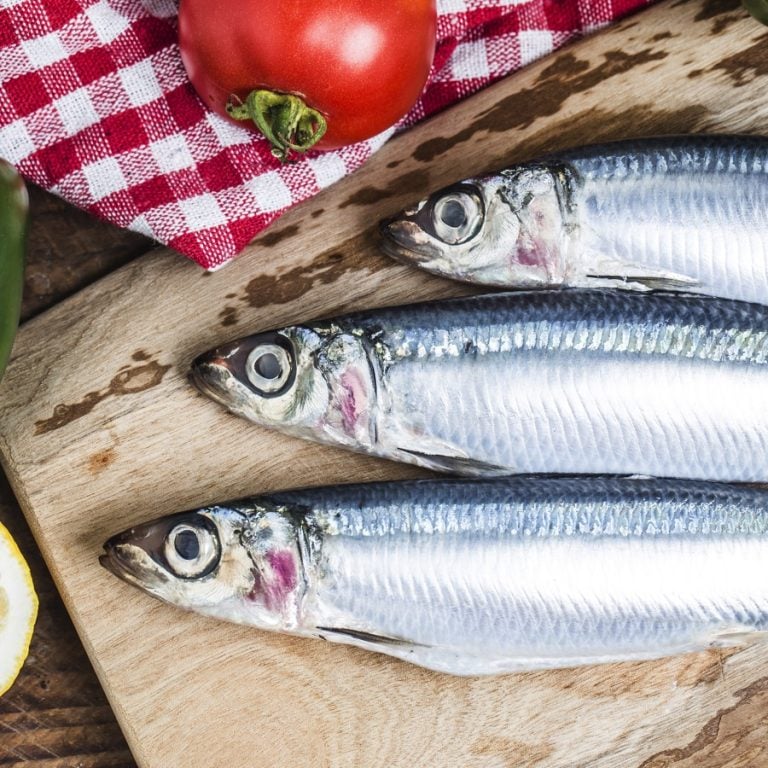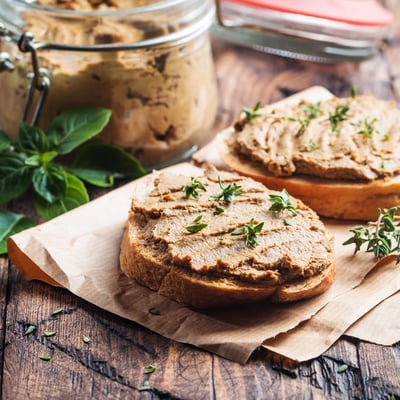1
00:00:03,923 –> 00:00:08,065
Quando chegam as festas dos Santos Populares, do que mais nos lambuzamos?
{{When the Popular Saints’ Festivals arrive, what else do we gorge ourselves on?}}
2
00:00:08,423 –> 00:00:11,645
A sardinha, petisco autêntico português.
{{The sardine, an authentic Portuguese snack.}}
3
00:00:12,685 –> 00:00:14,989
Festas dos Santos Populares
{{Popular Saints’ Festivals}}
4
00:00:15,887 –> 00:00:20,073
Como o nome diz, são festas dedicadas aos santos populares,
{{As the name implies, these are celebrations dedicated to the popular saints,}}
5
00:00:20,423 –> 00:00:26,688
nomeadamente Santo António, São João e São Pedro, sendo as principais, as duas primeiras.
{{namely Santo António, São João and São Pedro, being the first two, the main ones.}}
6
00:00:27,114 –> 00:00:30,868
Estas festas são comemoradas todos os anos,
{{These festivals are celebrated every year,}}
7
00:00:31,010 –> 00:00:37,938
todo o santo mês de junho e as pessoas passam horas na rua até madrugada a se divertirem e a comerem!
{{the whole holy month of June, and people spend hours on the street until dawn to have fun and to eat!}}
8
00:00:38,430 –> 00:00:40,740
É uma das maiores celebrações do ano.
{{It is one of the greatest celebrations of the year.}}
9
00:00:41,266 –> 00:00:43,923
E o que se come nesta altura em excesso, é a sardinha,
{{On this occasion sardines are eaten in excess,}}
10
00:00:44,280 –> 00:00:48,545
uma iguaria especialmente acarinhada por nós há séculos!
{{a delicacy especially cherished by us for centuries!}}
11
00:00:49,057 –> 00:00:53,108
Tanto que é uma das Sete Maravilhas da Gastronomia de Portugal
{{So much so, that it is one of the 7 Wonders of the Gastronomy of Portugal}}
12
00:00:53,458 –> 00:00:59,839
e temos lojas completamente dedicadas a este peixinho, uma delas muito colorida, no Rossio.
{{and we have stores completely dedicated to this little fish, one of them very colorful, in Rossio.}}
13
00:01:01,024 –> 00:01:02,648
Alma de Pescadores
{{Fisherman’s Soul}}
14
00:01:03,144 –> 00:01:07,239
A sardinha é, claramente, o peixe mais famoso de Portugal,
{{The sardine is clearly the most famous fish in Portugal,}}
15
00:01:07,649 –> 00:01:12,230
e com ela se confecionam muitos tipos de refeições –
{{and many types of meals are made with it –}}
16
00:01:13,864 –> 00:01:19,200
ensopados de sardinhas, sardinhas recheadas, sardinhas grelhadas.
{{sardine stews, stuffed sardines, grilled sardines.}}
17
00:01:19,670 –> 00:01:21,507
Muitas, muitas sardinhas!
{{Many, many sardines!}}
18
00:01:21,957 –> 00:01:27,635
Portugal tem o maior consumo de peixe na Europa, cerca de 25% da alimentação,
{{Portugal has the highest fish consumption in Europe, around 25% of our food intake,}}
19
00:01:28,008 –> 00:01:33,706
e a prática da pesca é que nos permitiu sobreviver à fome durante vários anos,
{{and it was the practice of fishing that has allowed us to survive hunger for several years,}}
20
00:01:33,982 –> 00:01:39,850
incluindo antes da Revolução de vinte e cinco de Abril, quando a carne era para os ricos.
{{including before the April 25th Revolution, when meat was for the rich.}}
21
00:01:41,423 –> 00:01:48,188
A apanha deste peixe e de muitos outros, permitiu a sobrevivência e abriu muitas novas oportunidades,
{{The harvesting of this fish and many others allowed for survival and opened up many new opportunities,}}
22
00:01:48,567 –> 00:01:54,300
dando vaga a muito emprego na área do comércio, transportes, investigação e muito mais.
{{creating lots of jobs in local trade, transport, research and much more.}}
 We respect your privacy and have a ZERO TOLERANCE for spam.
We respect your privacy and have a ZERO TOLERANCE for spam.
















Great to have these new ‘shorties’. Curious to understand some of the pronunciation. Sounds like a ‘ch’ sound at the beginning of ‘Santos’ … but not ‘Santo’ !? And again at the start of ‘celebrações’, ‘shele… Any reason?
Great question! The author and reader, Kena, has family from São Tomé and Angola in Africa. However, in this case, this pronunciation curiosity seems to have more to do with the words before:
…Festa dos Santos: The s from “dos” sounds like “sh”, because it’s at the end of a word. Then, it leads right into the first “s” in “Santos”, which makes those two words sound a bit like “dooshantos”. However, If it were said more slowly, you would hear those two “s”‘s articulated separately as you’d expect: “doosh Santoosh”
Same situation with “…maiores celebrações”. If spoken slowly, you’d hear those 2 distinct “sh” + “c” sounds.
I don’t eat fish, but i appreciate the bigger historical context you put it in to explain the fish eating traditions in Portugal. Well written text!!
looks like there should be two c’s in confeccionar, both in the text and in the vocabulary.
Olá, Glenn. This is the current spelling of the word in European Portuguese, after a relatively recent spelling reform (made effective in the past decade). But in the past, it was indeed written with a double C 🙂 Some people pronounce it with a double C, even to this day, including the speaker in this shorty. That might also be the reason for your comment.
I love love the Portuguese sardinhas! I would love to see more content at different levels about the 7 wonders of the Portuguese food.
I did a keyword search and couldn’t find any about bacalhau and leitão, etc. Shocking! how’s that even possible?! 😉
Also the App has been completely frozen twice on my iPad. I had to uninstall and reinstall. Not sure why.
Here is all our food-related content, but you’re right that we should do more that are specific to particular Portuguese foods: bacalhau, leitão, etc.
We have some on pastel de nata, francesinha, fish, and cheese. And there’s a bacalhau post in progress. We’ll keep working on it!
As for the app, did the reinstall fix the problem? If not, can you reach out to us via the Contact forum and we will help more!